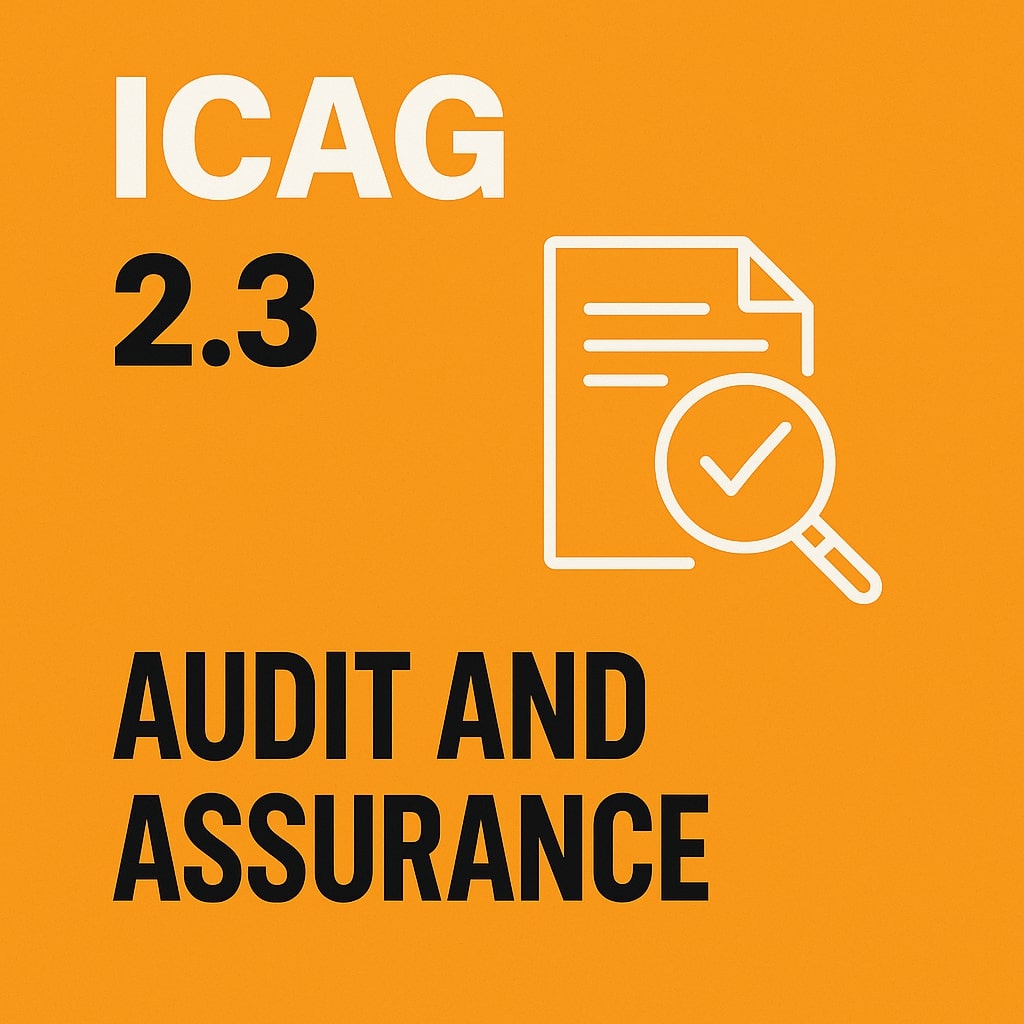The Audit and Assurance module (Paper 2.3) is part of the Skills Level (Level 2) in the ICAG professional qualification syllabus. It builds on the Knowledge Level, focusing on the principles, processes, and practices of auditing and assurance services, emphasizing compliance with International Standards on Auditing (ISAs) and ethical standards. Below is the syllabus coverage in tabular form, including main topics and their approximate weightings (guiding study time and exam mark allocations).
| Syllabus Topic | Description | Weighting (%) |
|---|---|---|
| A. Nature, objective, and scope of audit and assurance | Explains the nature, purpose, and scope of audit and assurance engagements, including the regulatory framework (ISAs, Ghanaian auditing standards), types of assurance engagements (e.g., reasonable, limited), and the role of auditors in enhancing credibility of financial statements. | 10 |
| B. Audit planning and risk assessment | Applies audit planning principles (ISA 300, ISA 315), including identifying and assessing risks of material misstatement, understanding the entity and its environment, setting materiality, and developing an audit strategy and plan. | 20 |
| C. Internal control systems | Evaluates internal control systems (ISA 315, ISA 330), including control environment, risk assessment processes, control activities, information systems, and monitoring, and assesses their effectiveness in mitigating risks. | 15 |
| D. Audit evidence and procedures | Applies techniques to gather sufficient and appropriate audit evidence (ISA 500, ISA 520), including inspection, observation, inquiry, confirmation, recalculation, reperformance, and analytical procedures, and addresses sampling methods (ISA 530). | 20 |
| E. Audit reporting | Prepares and evaluates audit reports (ISA 700, ISA 705, ISA 706), including types of opinions (unmodified, modified, adverse, disclaimer), emphasis of matter, and other reporting responsibilities, ensuring compliance with ISAs. | 15 |
| F. Assurance engagements other than audits | Describes and applies principles for non-audit assurance engagements (ISAE 3000, ISRS 4400), such as reviews of financial statements, agreed-upon procedures, and compilation engagements, and their reporting requirements. | 10 |
| G. Professional ethics and legal responsibilities | Applies the IESBA Code of Ethics for Professional Accountants, including independence, integrity, objectivity, confidentiality, and professional competence, and addresses legal responsibilities (e.g., liability, negligence, fraud detection). | 10 |


